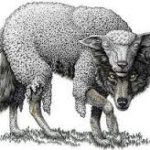Home equity represents the wealth of most middle-class Americans. Ideally, that wealth may be transferred to the next generation upon the death of a homeowner. However, reverse mortgages provide yet another financial instrument to confiscate the wealth and stunt the growth of the middle class by encouraging homeowners to extract decades of accumulated home equity in order to supplement their retirement. In part because the federal government now regulates reverse mortgages, the upfront costs may be exorbitantly high. These costs, including points, servicing fees, and mortgage insurance premiums, amount to free cash for the bank and mortgage insurance companies — which have zero risks and provide no actual services. In effect, a reverse mortgage simply transfers wealth from the middle class to the aristocracy. When the “owner” of the home dies, the government pays the bank any difference between the loan balance (principal and interest) and the sale price of the home. If the heirs want to keep the home, they must repay the loan in full. If the amount owed is more than the value of the home, the heirs must pay 95% of the loan balance to the bank, with the government paying the remaining balance. The bank serves no purpose in the transaction other than to profit, without any risk, by extracting cash from the government and the homeowner. (It should also be noted that a reverse mortgage may render the homeowner ineligible to participate in other government programs or to receive other benefits.)
As an example of a reverse mortgage, assume a 67-year-old woman with a $370,000 home who withdraws a lump sum of nearly $200,000 (at a 5.65 percent fixed rate). The initial costs at closing could easily reach $16,563, according to ReverseVision, a reverse mortgage software company. (In addition, another $5,518 in servicing fees — to cover those $35 monthly fees over the estimated life of the loan — would be set aside.) Over time, interest and other costs continue to accrue on the mortgage. If the borrower dies at age 80, and her home is worth $720,700 at that time, her heirs would be left with just $100,000. And the bank will have pocketed about $364,000 in interest.


